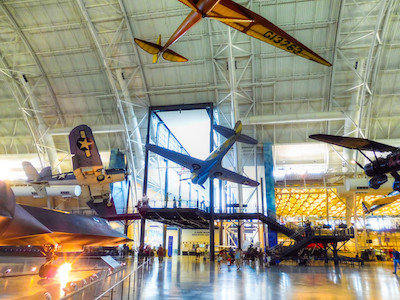Despite the overwhelming odds against it, many travelers, even frequent ones, have a fear of flying. To be more accurate I worry those travelers fear crashing although the chances of being killed in a plane crash are 1 to 10.64 million.
Comfort doesn’t come from the numbers, simply because the human brain doesn’t evaluate modern risks very well.
Accept The Risks
First off, determine if flying to your destination is worth it. Would you rather spend 18 hours in a car to Miami than take a 3 hour flight? If you can’t get over this consider the following.
- Driving Makes Increases Belly Fat – Prolonged hours sitting behind the wheel increase your chances of developing a tire around your waste. Belly fat lowers sex hormones and increases your chances of cancer and heart disease.
Of course, flying may be the only way to get to your destination. Once you accept that you’ll be getting on a plane, begin by preparing yourself.
Visualize It (The Crash) Happening
Humans overestimate the risks of their fear of flying for 2 reasons. Flying is not a common event (i.e. we don’t do it as often as driving) and the chances of it happening are very low. Also, fear reduces the ability of the human brain to think logically. Confronting your fear to make it less scary may seem counterproductive but will help to reduce anxiety.
Watch this scene from the movie Fight Club to get an idea.
More Ways To Confront Your Fear of Crashing
- Skydive – If plane crashes scare you so much, try flying without one. Turbulence won’t quite be some mysterious or intimidating as I learned after jumping at West Point.
- Read Survivor Stories – Certainly a terrifying experience, read about it from the people who’ve been through it.
- Stay Up To Date On The Latest Crashes – Feed your obsession with black box recordings, impact analysis, and the latest news at PlaneCrashInfo.com.
Entertain Yourself
Bring non-electronic ways to keep yourself busy during take-off and landing. These are generally the times that produce the most angst for fearful fliers. Since 80% of plane crashes happen during these times keep your mind occupied with things the cabin crew won’t make you put away.
- Books and Trashy Tabloids
- Cards
- Word Puzzles or Sudoku
- Listen to channel 9 (or equivalent) – It’s the radio station in your arm rest on United flights that lets you listen in on the pilots. You’ll hear how routinely and well they handle takeoffs/landings, wind variations, and airport traffic.
Have A Glass of Wine
Although any form of alcohol in moderation provides health benefits, (red) wine also contains tannins that help you feel drowsy. High altitudes also reduce the body’s tolerance to alcohol lowering your inhibitions and fear. That also means you’ll get drunk faster so you’ll be more accepting of the occasional turbulence bump.
Just In Case Use The Odds To Your Advantage
- Sit In The Back – An analysis of plane crashes over the past 35 years reveled at 20% better survival rate for those who were sitting in the back of the plane.
- wikiHowTo Guide – The step-by-step instructions include wearing long sleeved pants and shirts, reading the information card, and getting at least 500 feet upwind of the plane to avoid jet fuel fumes and explosions.
- Find Out How Others Did It – The New York Times has a great compilation of survival tactics that kept many lucky people alive.
Practical reasons aside being up in the sky at 30,000 feet isn’t natural but the fear of it is. Airplanes go through countless checks and must be 70, 80, or 90% functional before take off (depends on the airline; a pilot once told me). Regardless, flights take us to places we could not go otherwise within our shrinking vacation hours, get us there faster, and give us a chance to relax – if we let ourselves.
How do you reduce your fear of a horrible plane crash flying or does the steel bird not phase you? I’d like to hear how you handle the friendly sky jitters.
[photo by: Alaina B.]












So tomorrow morning at 6am i’m flying for the very first time with my disabled 2year old child. I’m really starting to get bad anxiety about the flight. I’m not at all worried about crashing (lol i saw the show lost, at least if we crash maybe i’ll get lucky to have an ajustment period too lol hahaha jp) but my biggest fears are like missing my plane on the lay over or someone taking my child (since it is such a huge crowded area) i can’t really have a glass of wine beings that i have my child with me! any other suggestions as to what i can take that will help me relax but not enable my ability to be an attentive parent!
Most flights give you enough time for the layover and airlines go out of their way to get you on the flight if you get delayed and have to cut it close. I probably take many more flights in a year than the average person and despite my tendency to always be very late, I’ve only ever missed a flight once. If that happens they just put you on the next flight.
As for safety and security, although they’re crowded, most airports in the world have a large number of cameras and police making them very safe places to be.
I hope that your flights are smooth and your anxiety eases for your return as you arrive at your destination. You can also try the accupressure point right behind your earlobes. Firmly rub them counterclockwise, it may also help you relax.